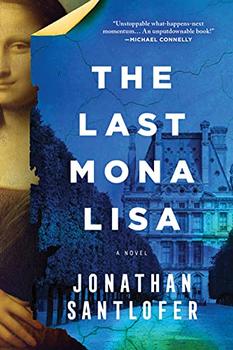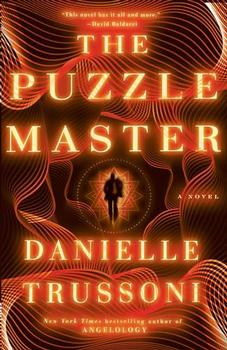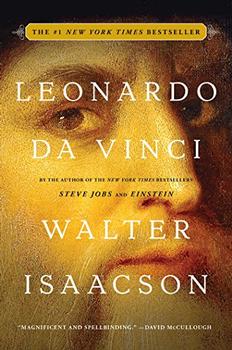Summary | Excerpt | Reviews | Beyond the book | Read-Alikes | Genres & Themes | Author Bio

A gripping novel exploring the Mona Lisa's very real theft in 1911 and the present underbelly of the art world, The Last Mona Lisa is a suspenseful tale, tapping into our universal fascination with da Vinci's enigma, why people are driven to possess certain works of art, and our fascination with the authentic and the fake.
August, 1911: The Mona Lisa is stolen by Vincent Peruggia. Exactly what happens in the two years before its recovery is a mystery. Many replicas of the Mona Lisa exist, and more than one historian has wondered if the painting now returned to the Louvre is a fake, switched in 1911.
Present day: Art professor Luke Perrone digs for the truth behind his most famous ancestor: Peruggia. His search attracts an Interpol detective with something to prove and an unfamiliar but curiously helpful woman. Soon, Luke tumbles deep into the world of art and forgery, a land of obsession and danger.
In general, the plot is slow to start, but as Luke's research begins to uncover more truths—and as those following him grow more impatient—the pace and suspense begin to build. Chapters become shorter as the book continues, which keeps the story moving, and the last 100 or so pages proceed at a breakneck pace. Santlofer teases the reader with just enough information to keep their interest without truly giving away anything until the very end. There are several twists that are just unexpected enough to be satisfying while also allowing for a neat conclusion to the Mona Lisa mystery...continued
Full Review
 (574 words)
(574 words)
(Reviewed by Jordan Lynch).
 The Last Mona Lisa is a fictionalized account of the real 1911 theft of the famous da Vinci painting of the title. Despite extensive investigation, it took more than two years for the painting to be recovered and returned to the Louvre. Other art heists don't have such happy outcomes: Sometimes stolen paintings are damaged or destroyed, and in some cases, the art simply vanishes, hidden away in a private collection and never seen in public again. Luke, the main character in the novel, gets a glimpse into one such private collection, seeing a painting that went missing in the heist at Boston's Isabella Stewart Gardner Museum—a crime that has never been solved. Although this private collection is fictional, the theft at the Gardner ...
The Last Mona Lisa is a fictionalized account of the real 1911 theft of the famous da Vinci painting of the title. Despite extensive investigation, it took more than two years for the painting to be recovered and returned to the Louvre. Other art heists don't have such happy outcomes: Sometimes stolen paintings are damaged or destroyed, and in some cases, the art simply vanishes, hidden away in a private collection and never seen in public again. Luke, the main character in the novel, gets a glimpse into one such private collection, seeing a painting that went missing in the heist at Boston's Isabella Stewart Gardner Museum—a crime that has never been solved. Although this private collection is fictional, the theft at the Gardner ...

If you liked The Last Mona Lisa, try these:

by Danielle Trussoni
Published 2024
Reality and the supernatural collide when an expert puzzle maker is thrust into an ancient mystery—one with explosive consequences for the fate of humanity—in this suspenseful thriller from the New York Times bestselling author of Angelology

by Walter Isaacson
Published 2018
He was history's most creative genius. What secrets can he teach us? The author of the acclaimed bestsellers Steve Jobs, Einstein, and Benjamin Franklin brings Leonardo da Vinci to life in this exciting new biography.